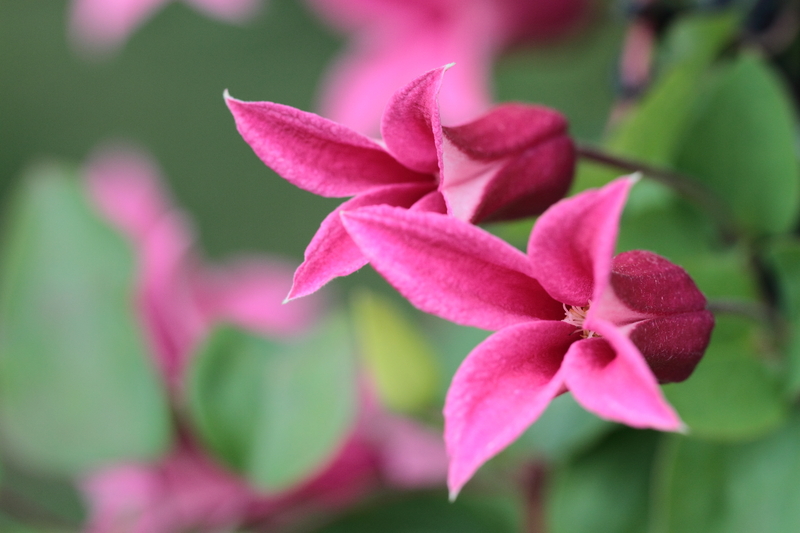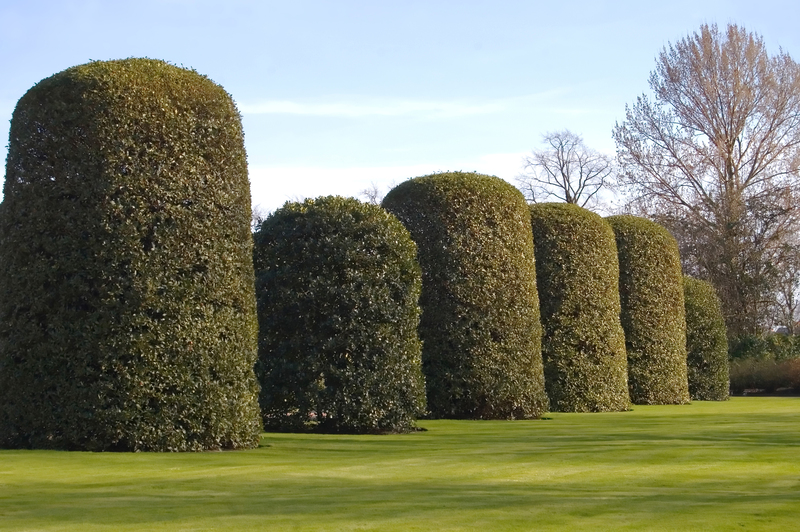Unlock Your Green Thumb: 9 Fundamental Tips for New Gardeners
Posted on 23/09/2025
Unlock Your Green Thumb: 9 Fundamental Tips for New Gardeners
Are you eager to dive into the world of gardening but unsure where to begin? Whether you dream of cultivating vibrant flowers, bountiful vegetables, or a lush green oasis, learning the basics is key. Gardening can be a rewarding hobby for people of all ages, offering not only stunning surroundings but also physical exercise, mental relaxation, and even delicious produce. This comprehensive guide will help you unlock your green thumb and master the fundamental gardening tips every new gardener should know!
Why Gardening Is the Perfect Hobby for Beginners
Gardening for beginners might feel overwhelming at first, but it's one of the most rewarding hobbies you can choose. Here's why:
- Well-being Booster: Spending time in nature relieves stress and improves mental health.
- Physical Activity: Digging, planting, and weeding are gentle ways to stay fit.
- Sustainable Living: Growing your own food reduces your carbon footprint and grocery bills.
- Creative Outlet: Designing your garden lets you express your personality and creativity.
Don't worry if you lack experience. Anyone can develop a green thumb with patience, persistence, and the right knowledge--let's get started!

9 Fundamental Tips to Unlock Your Green Thumb
1. Start Small and Simple
When embarking on your gardening journey, resist the temptation to go big right away. Small garden projects are easier to manage and less overwhelming for novice gardeners. Begin with a few flower pots, a raised bed, or a small patch in your yard. This allows you to focus your attention and learn from each success (or mistake) without getting discouraged.
- Select a manageable area (e.g., a 4x4 raised bed or three pots).
- Grow plants that are known to be easy for beginners, like marigolds, basil, lettuce, or pansies.
- Remember: Master the basics before expanding your gardening empire!
2. Know Your Climate and Hardiness Zone
Every plant has particular needs for sunlight, temperature, and precipitation. Understanding your local climate and USDA Hardiness Zone is crucial for successful gardening. This will inform your choices about which crops will thrive and when to plant them.
- Find your hardiness zone using the official USDA map.
- Choose plant varieties labeled for your zone and growing season.
- Keep in mind local weather conditions like frost dates, rainfall, and wind patterns.
If you're gardening indoors, focus on plants that suit your indoor growing environment.
3. Test and Improve Your Soil
Your garden is only as healthy as the soil it's planted in. Before you plant anything, get to know your soil's type (loamy, sandy, clay, silt) and pH. A simple soil test can reveal important information about nutrients and drainage.
- Purchase a soil test kit from a garden center or send a sample to your local extension office.
- Mix in organic matter (like compost, well-rotted manure, or peat moss) to boost fertility and structure.
- Aim for a soil pH between 6.0 and 7.0 for most garden vegetables and flowers.
Healthy soil is the foundation of a thriving garden and will help you maximize your green thumb potential.
4. Pick the Right Plants for Your Space
One of the most important beginner gardening tips is to choose plants suited to your space. Consider the amount of sunlight your garden receives:
- Full Sun: 6+ hours of direct sunlight per day (ideal for tomatoes, peppers, and most herbs).
- Partial Sun/Part Shade: 3-6 hours of sun daily (great for leafy greens, root veggies, impatiens).
- Full Shade: Less than 3 hours of sun (hostas, ferns, some wildflowers thrive here).
Read plant labels or seed packets carefully. Plan your garden based on space, sun, and plant companions--some plants grow better together than others!
5. Master Proper Watering Techniques
Proper watering is the key to healthy, vigorous plants. Both overwatering and underwatering can lead to weak growth and disease. Here's how to water like a pro:
- Water deeply and less often rather than shallowly and frequently.
- Use a finger test: Stick your finger two inches into the soil. If it feels dry, it's time to water.
- Water early in the morning or late in the afternoon to reduce evaporation.
- Avoid wetting leaves excessively to prevent fungal diseases.
- Consider drip irrigation or a soaker hose for efficiency.
Remember, consistency is key! All plants appreciate regular attention.
6. Feed Your Plants the Right Way
Just like people, plants need a balanced diet--not just water and sunshine. Regularly feed your plants with the appropriate fertilizer, based on their stage of growth and specific needs.
- Start with organic fertilizers, like compost, worm castings, or fish emulsion.
- Follow label instructions to avoid overfeeding, which can burn your plants.
- Slow-release granular fertilizers are convenient for beginners.
Always remember: Healthy soil = healthy plants = a happy gardener!
7. Learn to Spot and Manage Common Pests
Every new gardener will encounter pests eventually, but with a proactive approach you can keep them under control. Regular inspections are key--look for wilted leaves, holes, or spots.
- Encourage beneficial insects like ladybugs and lacewings, which are natural pest predators.
- Hand-pick larger pests such as caterpillars or snails.
- Use organic pest controls (neem oil, insecticidal soap) only when necessary.
Practice crop rotation, proper spacing, and good garden hygiene to minimize pest and disease problems.
8. Pruning and Deadheading for Healthier Growth
Pruning is not just for trees! Learning when and how to trim your plants encourages better air circulation, prevents disease, and shapes your garden beautifully.
- Remove dead, damaged, or diseased stems promptly.
- Deadhead (remove spent flowers) to promote continuous blooming in many flowers.
- Use sharp, clean tools to make clean cuts.
Don't be afraid: regular pruning helps your plants put energy into new, healthy growth.
9. Keep Growing: Learn, Experiment, and Stay Patient
Gardening is a journey, not a race. Even the best gardeners learn new things every season. Patience and curiosity are your best tools for success as a new gardener.
- Keep a gardening journal to track successes and failures.
- Connect with local gardening clubs, workshops, or online forums for advice and inspiration.
- Celebrate small victories - every new sprout, bloom, or harvest is a step forward!
Remember: Mistakes are part of learning. Every failed crop or wilted leaf teaches you something new.
Bonus Tips: Go Beyond the Basics for a Thriving Garden
1. Companion Planting
Many garden plants thrive when grown with certain neighbors and struggle next to others. Research which plants make the best companions to optimize your veggie garden and naturally deter pests.
2. Mulch for Moisture and Weed Control
Applying a 2-3 inch layer of mulch around your plants helps retain soil moisture, suppress weeds, and regulate soil temperature.
3. Tools Matter
Quality hand tools, pruners, gloves, and a sturdy watering can make gardening more enjoyable and efficient for beginners. Maintain and clean them to extend their life!

Frequently Asked Questions for Beginner Gardeners
- How often should I water my garden?
It depends on your soil type, the plants you choose, and your local climate. Generally, 1-2 inches of water per week is sufficient for most gardens. - What are the best vegetables to grow for beginners?
Lettuce, radishes, bush beans, zucchini, and tomatoes are easy and rewarding starter crops. - Can I start gardening if I only have a balcony?
Absolutely! Many vegetables and flowers grow well in containers as long as you provide the proper light, water, and soil.
The Journey to a Flourishing Green Thumb
Gardening is about discovery, resilience, and the joy of nurturing life. By following these nine fundamental tips for new gardeners, you'll lay the foundation for years of beauty, productivity, and satisfaction. Your green thumb is within reach--unlock it with patience, practice, and passion!
Happy gardening! May your plants flourish, your garden bloom, and your spirits soar as you embrace your journey into the world of gardening.
Latest Posts
Unlock Your Green Thumb: 9 Fundamental Tips for New Gardeners
Reviving Soil Health with Organic Waste Transformation
Exploring the art of growing plants in pots

